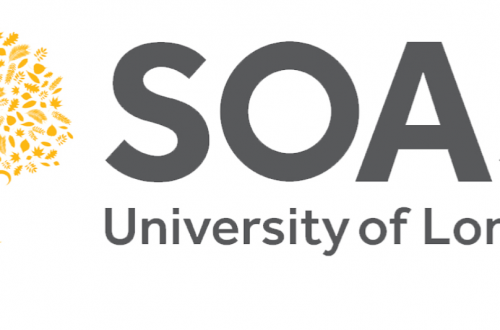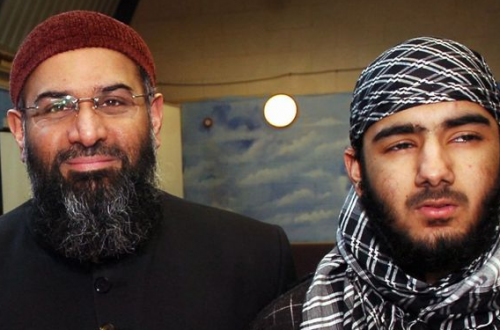This is a cross post by Jacob Mchangama from The Daily Beast
One of the supposed core values of the so-called “counter-jihad movement,” a loosely organized collection of vocal activists battling what they believe is the immediate threat of an Islamic takeover of the West, is an unflinching defense of free speech. Because dominant parts of the political elite in many Western states have been hesitant to oppose the real threat that certain Islamic states and Islamist groups pose to free speech, as seen by, for example, their handwringing during the Danish “cartoon crisis,” the counterjihadis have had some success in posing as the true defenders of free speech. The counterjihadis appear willing to defend this enlightenment principle, whereas feckless politicians and intellectuals fear appearing as bigoted or insensitive to minorities. Yet one need only scratch the surface to realize how dominant members of the counterjihad movement are more than happy to compromise on free speech as long as the ends justify the means and those denied their rights are Muslim.
The most blatant example of this agenda was made by one of the godfathers of the counterjihad movement, American blogger and author of “Jihadwatch,” Robert Spencer. Spencer recently wrote a short piece commenting on the news report that Angola had banned Islam and decided to demolish all mosques—a report that turned out to be false. As he has often hailed America’s First Amendment protections of freedom of conscience, expression and religion, one might have expected Spencer to unequivocally condemn the draconian measures ascribed to the Angolan government.
Yet Spencer initially reacted that “[I]n any case, clearly this is a national security issue … There is no way in Angola any more than there is anywhere else to distinguish jihadis in Angola from the peaceful Muslims among whom they move, organize and recruit, and clearly this measure is designed to stop that activity. However, censure from the U.N. and the world “human rights” community will probably soon compel Angola to change its stance, and allow the jihadis free rein.”
Spencer’s stunning approval of what would have been a totalitarian policy by the government of a police state was met with overwhelming and enthusiastic approval by many of his commenting readers. But when Spencer realized that the story was incorrect, he quickly wrote an update in which he suddenly, and conveniently, contradicted his earlier stance and insisted that the supposed ban was contrary to “freedom of conscience” and “human rights.” These are, of course, the very values he had pre-emptively shorn in his initial piece.
There are good reasons to believe that Spencer’s original comments jibe with broad elements of the movement of which he is a prominent member. Spencer’s comrade in arms, Pamela Geller, the president of Stop the Islamization of Nations, also bloggedapprovingly of Angola’s supposed ban against Islam, calling it “self-preservation on a continent where countries are getting swallowed whole by jihadists enforcing the sharia. It’s a defensive move.” Apparently, self-defense trumps free speech when the enemy is Islam.
Another prominent member of the Counterjihad movement is Danish citizen Anders Gravers, director of Stop the Islamization of Europe and Stop the Islamization of Denmark and, who, along with Geller and Spencer, is a member of the President’s Council of Stop Islamization of Nations. Pamela Geller calls Gravers “one of the foremost defenders of and fighters for freedom.” Spencer, likewise, calls him “my colleague” and has defended him against accusations of being a xenophobe. Yet Anders Gravers is in fact a bona fide xenophobe whose views are antithetical to freedom.
In this speech, Anders Gravers demands that “the Quran should be banned for being a manual of hate,” echoing a proposal by Dutch politician Geert Wilders who long served as a poster boy of the Counter-jihad movement. The manifesto of Stop the Islamization the of Denmark (SIAD), headed by Gravers, calls for denying all non-citizens their constitutional right to political manifestations (which presumably would ban Pamela Geller and Robert Spencer from speaking publicly in Denmark). The manifesto also includes bizarre demands, such as limiting public libraries to servicing Danes and “strictly prohibiting,” on pain of fines and revocation of citizenship, crossing out the original text in school books, unless previously authorized by the ministry of education. To add another nail in the coffin, SIAD advocates introducing a law that with retroactive effect dating back to 1973 would make it “a crime against the independence and security of the state” to aid “foreign peoples with settling in Denmark.” Essentially, this would be a law aimed at punishing politicians “guilty” of adopting immigration policies with which SIAD disagrees.
During the controversy over the so called “Ground Zero Mosque,” which was to be constructed a few blocks from Ground Zero in lower Manhattan, Spencer and Geller not only criticized the proposal (as is their legitimate right), but led a campaign demanding that the project be stopped based on the religious viewpoints of the responsible imam and the offense the symbolism of the project would putatively cause. Whether the imam in question holds intolerant views or not, and whether the mosque is an offensive symbol to survivors of 9/11, are irrelevant from a principled free speech point of view. After all, the First Amendment does not make exceptions for any specific religion or ideology and has been the basis for successfully defending Nazis wanting to march through Skokie, a small town once inhabited by the largest population of Holocaust survivors, the incendiary protests of the extremists in Westboro Baptist Church, Ku Klux Klan marches, and Terry Jones’s Quran burnings.
Moreover, Spencer and Geller’s stance vis-à-vis the Ground Zero Mosque hardly resonates with the First Amendment advocacy that the counter jihad movement engages in when opposing restrictions on anti-Islamic speech. When the N.Y. Metropolitan Transportation Authority refused to run an ad by a Geller-affiliated group, which the MTA found “demeaned individuals or groups on the basis of race, color, religion, national origin,” Geller challenged the ban in court. The MTA decision was ultimately ruled unconstitutional by a federal judge, insisting that “there is no good reason for protecting some individuals and groups, but not others, from such abuse.” Geller rightly celebrated that decision as a victory for free speech, but her speeches and actions show that she herself is a highly selective defender of free speech who is willing to deny this same freedom to others.
Geller and Spencer were also rightly outraged when British Home Secretary Theresa May decided to ban them from entering the United Kingdom, categorizing them as founders of “anti-Muslim hate groups.” They have also been critical of hate speech convictions of hard nosed Islam-critics in countries such as the U.K., France, Denmark, Austria, and Finland. Yet the counterjihad movement’s hypocritical stance on free speech actually legitimizes such inherently arbitrary and nebulous laws that seek to enforce tolerance through coercion rather than a free and open debate. And if counterjihadists are actively advocating the denial of their political opponents’ basic rights, it is clearly hypocritical for them to complain when those who find their own viewpoints bigoted and repugnant are silent or even approving of laws targeting anti-Muslim hate speech.
Unless such laws are rejected on principled grounds, their application simply becomes a question of arbitrary political or administrative favor. No single citizen will be more than a political majority away from being the target, rather than the beneficiary, of laws against hatred and offense. The oft heard insistence that “tolerance towards intolerance is cowardice,” therefore, quickly turns into a tautology: Those insisting that intolerance be met with intolerance risk being met with intolerance themselves, unless the impermissible limits of intolerance are drawn narrowly, such as under the First Amendment, based on equality before the law. In the context of the broader effort to promote and defend the principles of freedom of conscience, expression and religion, the illiberal tendencies of the Counterjihadist movement are perhaps even more paradoxical. If Western states were to ban the Quran and the construction of mosques, how could they effectively hope to defeat the decade long campaign of Muslim majority states to have criticism of Islam prohibited under international human rights law? If Muslims were jailed for peacefully practicing their faith, how could democracies criticize states such as Saudi Arabia, where the liberal blogger Raif Badawi was sentenced to seven years imprisonment and 600 lashes for insulting Islam, or Kuwait, where Mussab Shamsah was sentenced to five years in jail for tweeting insults against the prophet Muhammed?
The best hope of combating intolerance, whether that spread by radical Islamists who threaten and sometimes physically attack critics of Islam or by racist Neo-Nazi groups such as Greece’s Golden Dawn, is to rely on the safety valve provided for by freedom of expression. This safety valve allows citizens to sound the alarm and challenge those whose views are hateful and totalitarian. It is assuredly not by mimicking the Gellars and Spencers of the world, thereby effectively becoming an anti-Jihadist Jihadi.


